The AWS Cloud Security Course is a specialized training program designed to teach professionals how to secure cloud environments hosted on Amazon Web Services (AWS). It focuses on various aspects of security, including identity and access management, network security, data protection, incident response, compliance, and threat detection within the AWS cloud infrastructure. The course provides comprehensive knowledge of AWS security services and best practices used to protect resources, applications, and data in the cloud. It covers tools such as AWS Identity and Access Management (IAM), AWS CloudTrail, Amazon VPC, AWS Shield, AWS Web Application Firewall (WAF), AWS KMS, and Amazon GuardDuty. The course also emphasizes the importance of securing virtual private clouds (VPC), securing data storage, implementing encryption for data at rest and in transit, and ensuring regulatory compliance in the cloud environment. The course prepares learners to design, implement, and manage security architectures in AWS environments, addressing the unique challenges and threats faced by organizations adopting cloud technologies.
 Top Ranked Cyber Secuirty Course By HACKING TEACHER
Top Ranked Cyber Secuirty Course By HACKING TEACHER


































AI Powered Full Stack Web Development Course
Learn AI powered web development and futureproof your career to lead in an AI dominated tech industry.
The AWS Cloud Security Course is ideal for IT professionals, security engineers, cloud architects, and developers who are responsible for securing cloud environments within AWS. It is particularly beneficial for individuals working in roles such as cloud security engineers, cloud solutions architects, cybersecurity professionals, and security operations specialists. The course is also suitable for DevOps engineers and system administrators who want to enhance their understanding of security practices in AWS environments.
Compliance officers and professionals responsible for regulatory compliance can also benefit from the course, as it covers tools and strategies for maintaining compliance with security frameworks such as GDPR, HIPAA, and PCI-DSS in cloud environments. For those who are transitioning into cloud security from traditional on-premises security roles, the course offers valuable knowledge on securing cloud-based infrastructures and managing security risks unique to cloud platforms.
This course is also a good fit for professionals looking to specialize in AWS cloud security and pursue the AWS Certified Security – Specialty certification. It provides a solid foundation for individuals aiming to advance their careers in cloud security, particularly within organizations that heavily rely on AWS for their infrastructure and services.
Additionally, the course is suitable for individuals who want to develop practical skills in securing AWS environments, protecting sensitive data, managing identity and access controls, and responding to cloud-based security threats. Anyone aiming to understand the latest security tools and best practices offered by AWS, such as AWS Identity and Access Management (IAM), AWS Shield, and AWS CloudTrail, will find this course highly beneficial.
































Highest Salary
Average Salary
Hiring Partners


+ Unlimited Pwnbox usage
+ CPE credits submission
+ Unlimited Pwnbox usage
+ CPE credits submission
+ Unlimited Pwnbox usage
+ CPE credits submission
+ Unlimited Pwnbox usage
+ CPE credits submission
The Hacking Teacher Certification teaches educators about teaching ethical hacking and cybersecurity with the proper skills. This program offers extensive training on some of the most technology pressing issues facing the cyber security world today including penetration testing, threat analysis and secure coding. It is ideal for IT professionals and trainers to ensure that all knowledge is transferred for audiences to inspire the next generation of cybersecurity experts.

We focus on essential exploiting topics such as SQL Injection, Wireless Networks, IoT Hacking, Cloud Computing, social engineering, sniffing, and session hi jacking.










Enterprise Attack Simulation Training is an opportunity to practice simulating cyberattacks against corporate networks on a hands-on basis. Participants learn how to find vulnerabilities, to exploit weaknesses and to evaluate system defenses using advanced tools and methodologies.
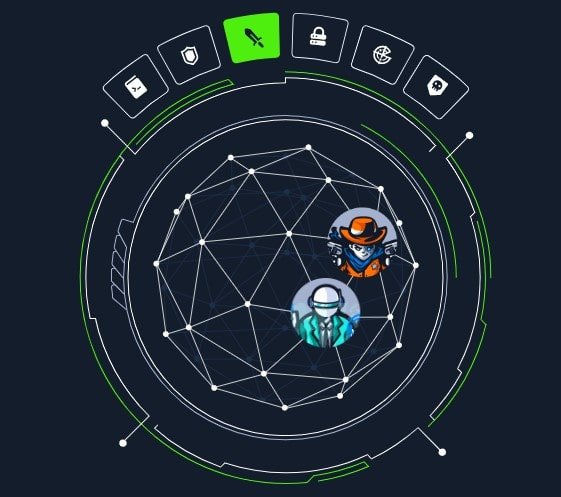
The practice is in live, not simulated virtual IT labs built according to the leading vendors certifications, including: Apart from these CompTIA, Microsoft, Cisco, VMware etc." Our labs were designed to be interactive, and targeted towards a lot of real world experience so learners can hone their practical skills. We work with subject matter experts on networking, security, cloud computing and more, and we create and deliver labs based on these core IT competencies.

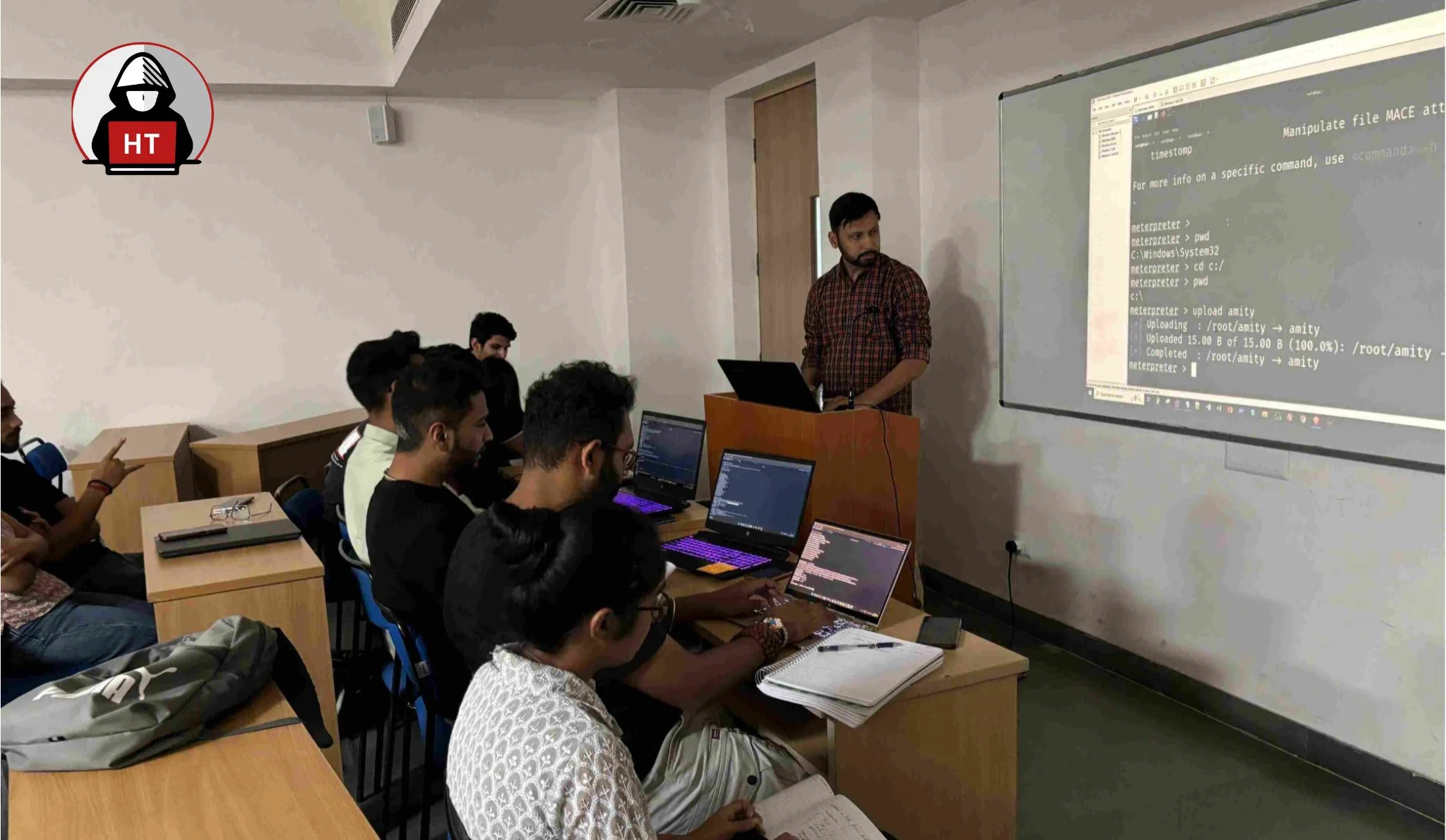
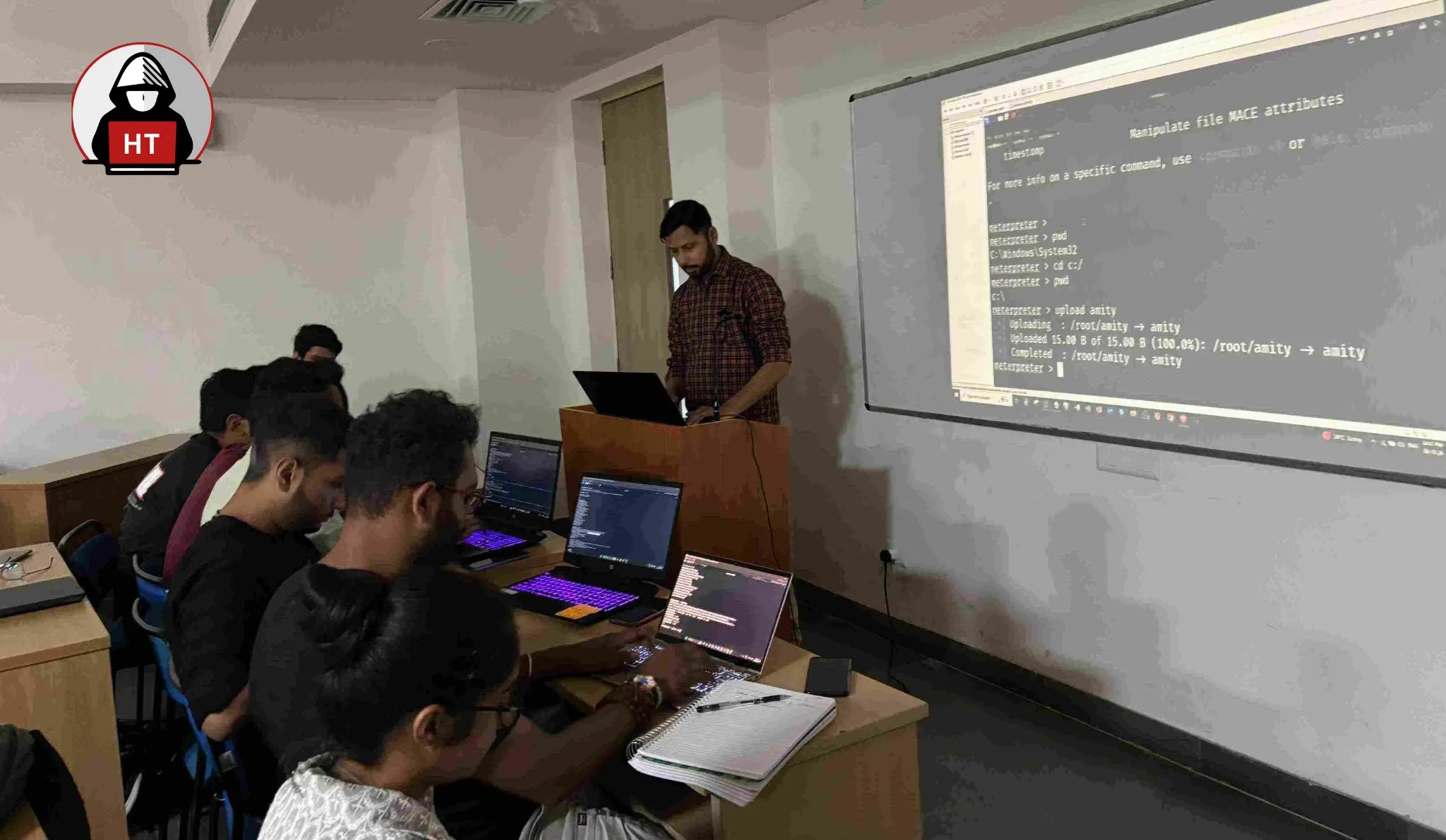
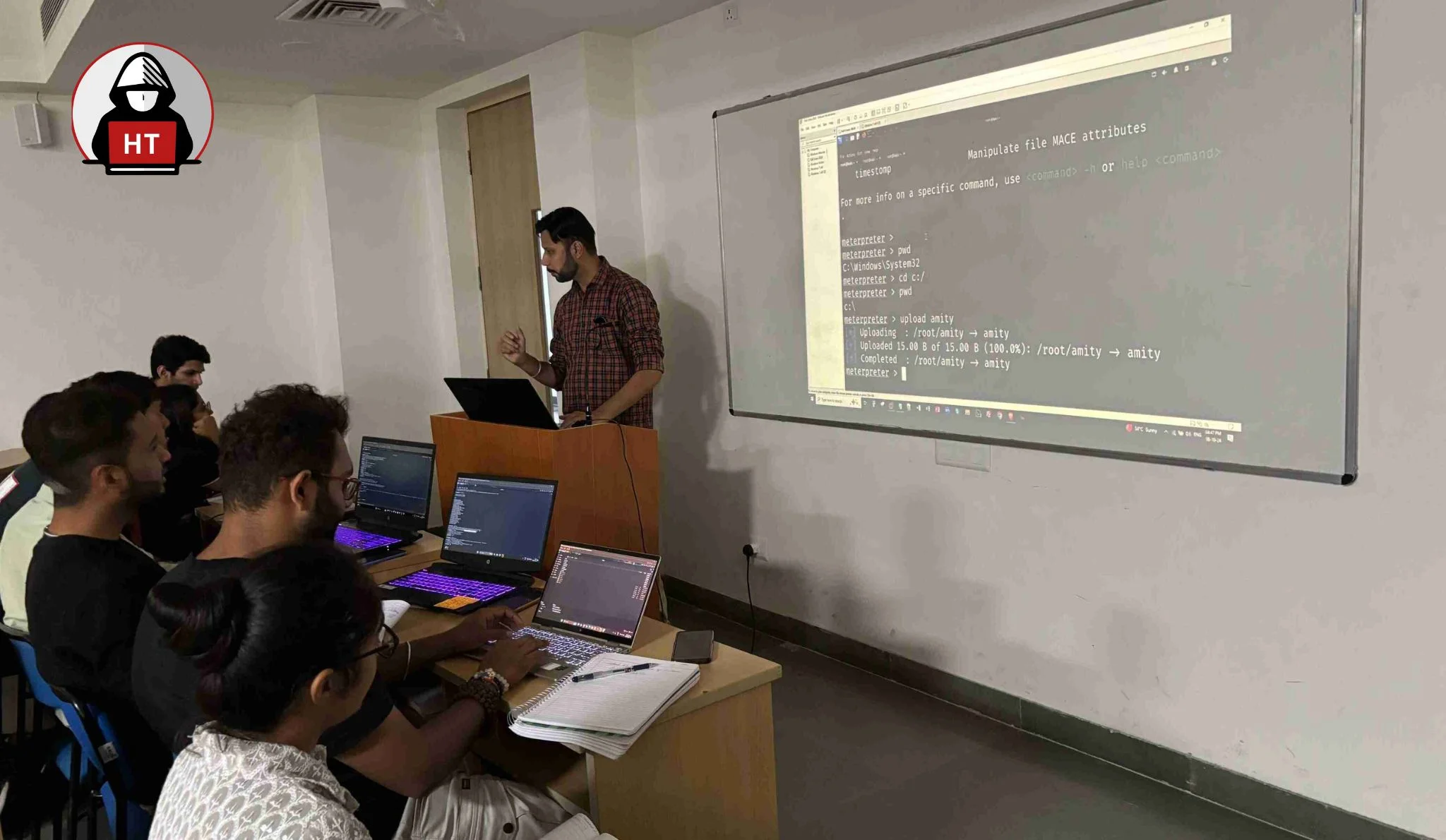
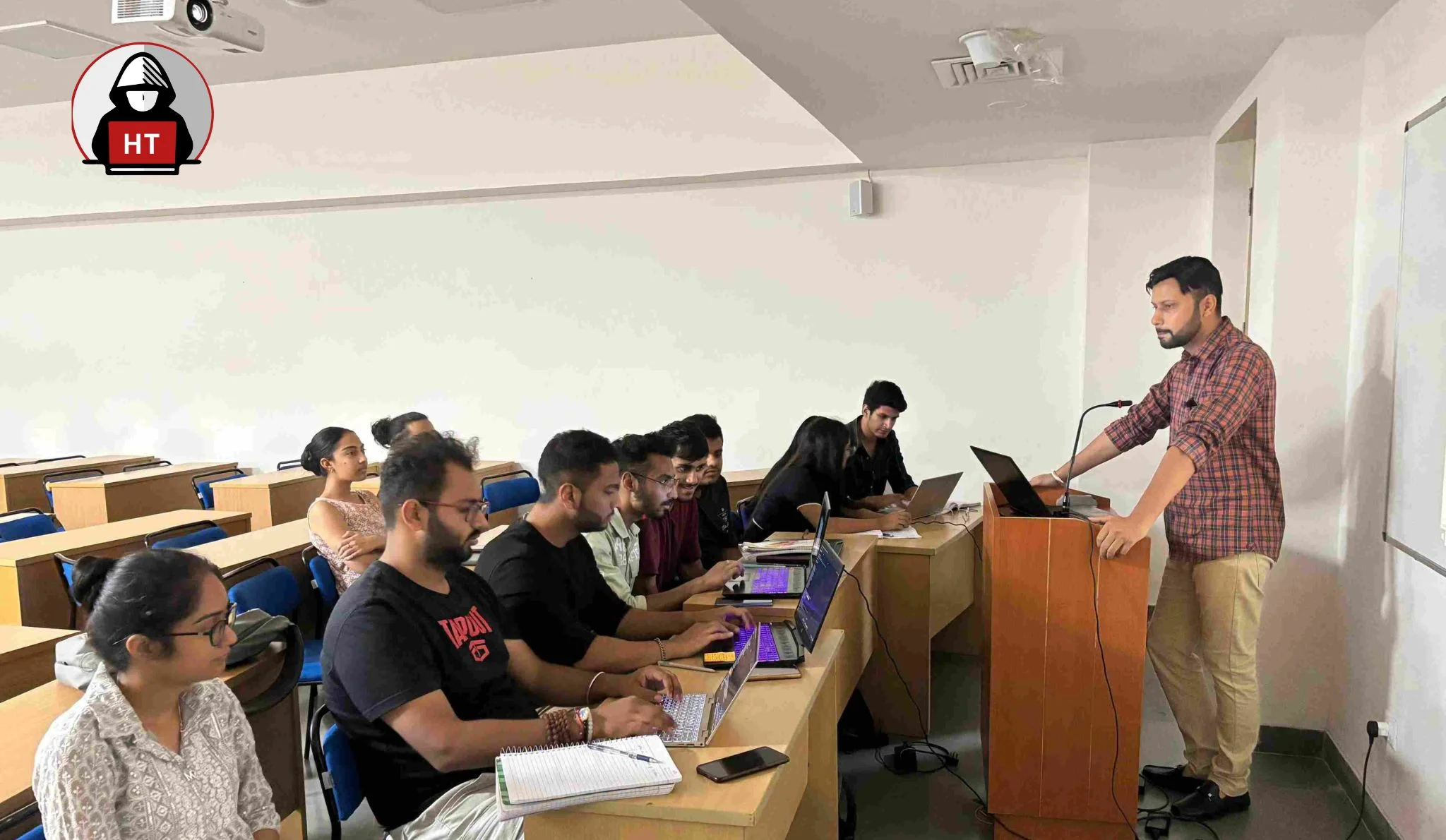
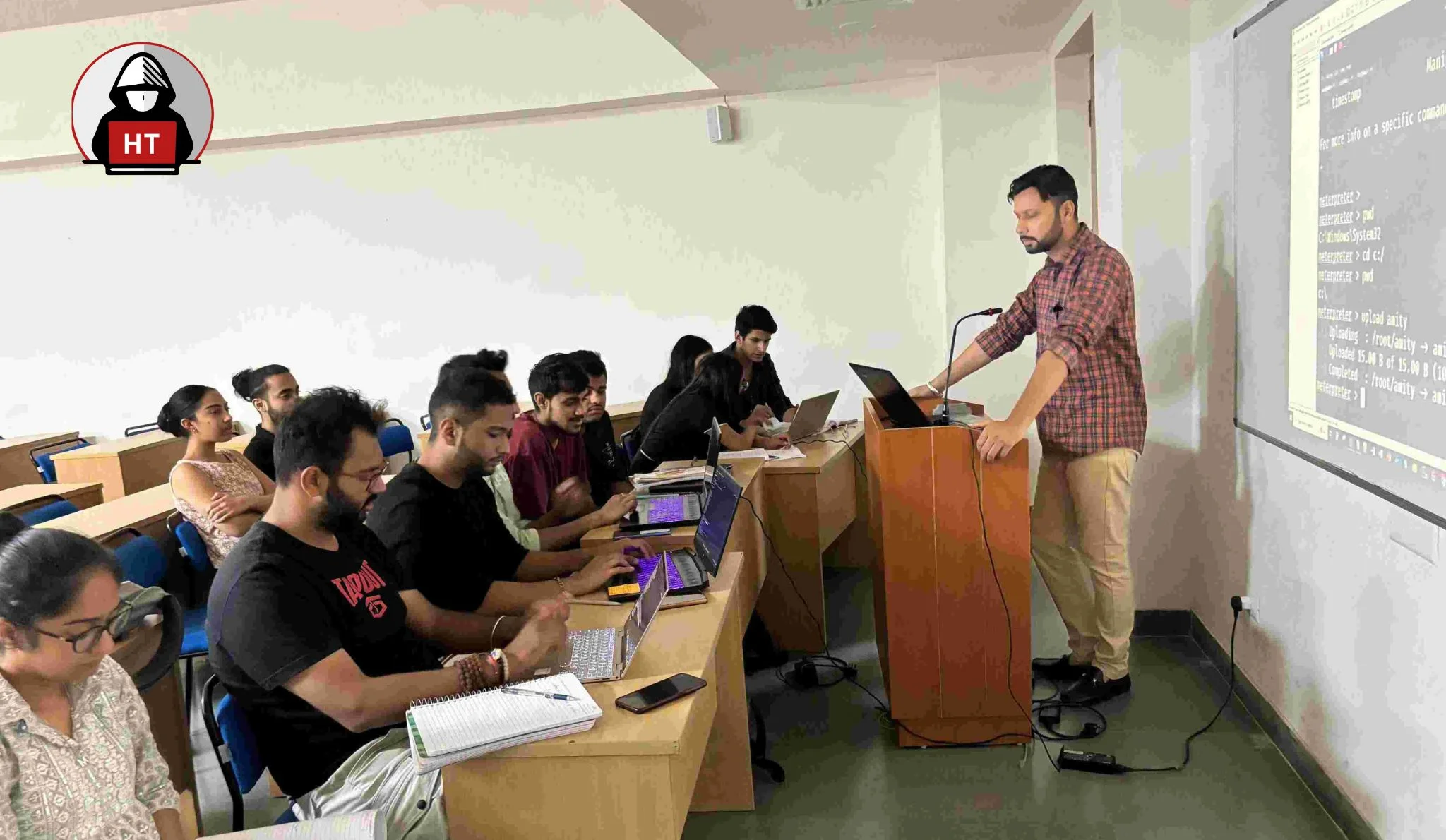
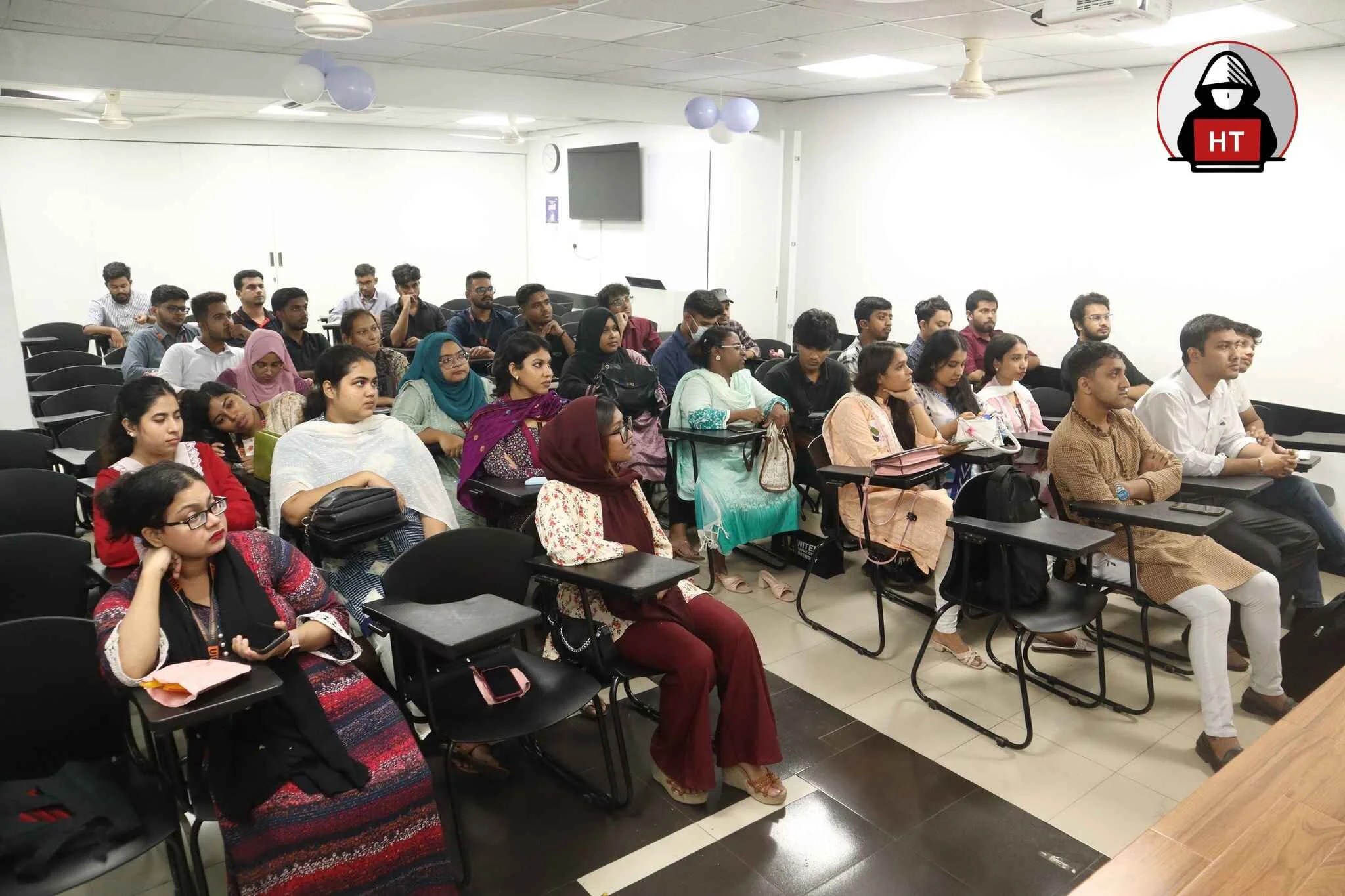
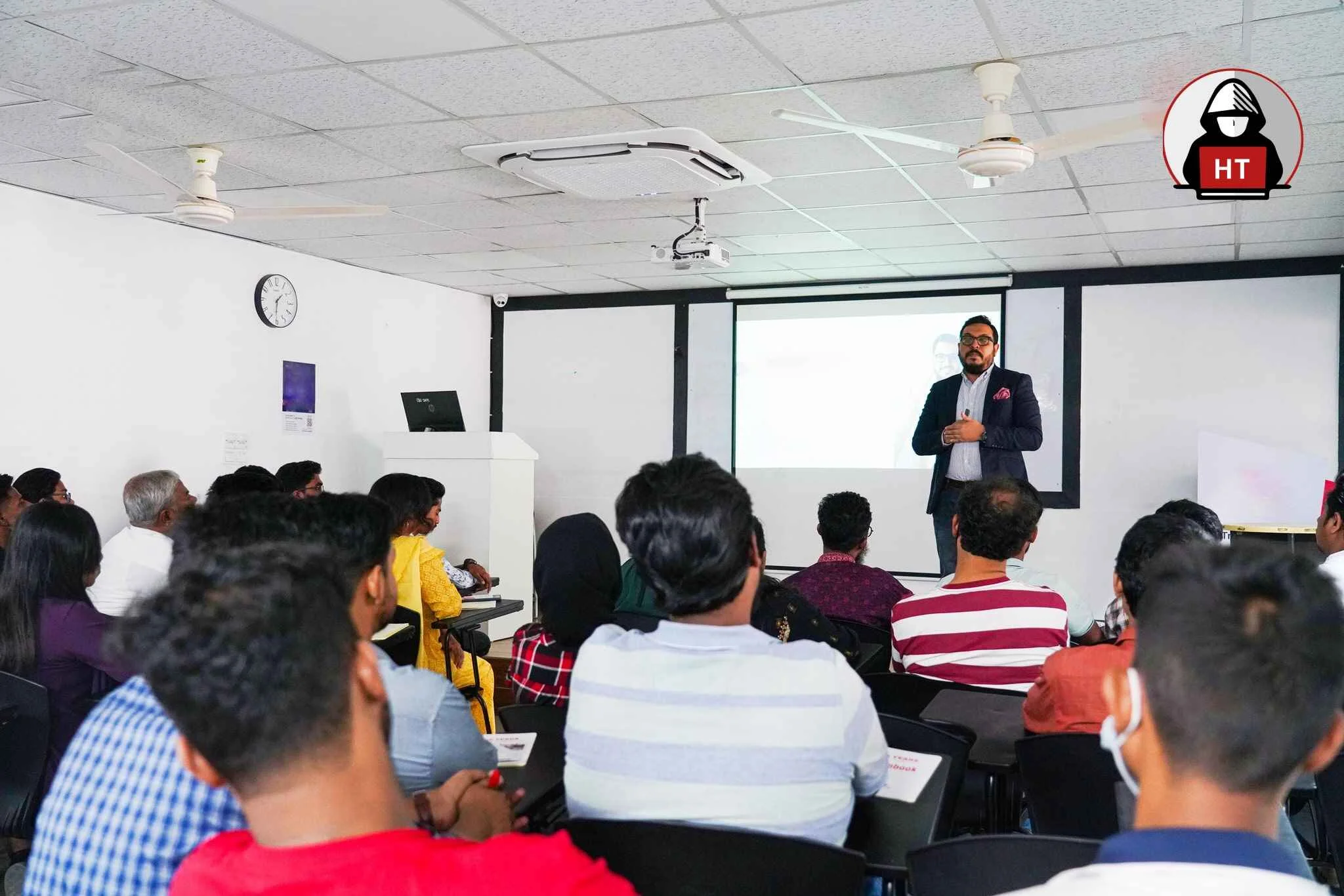
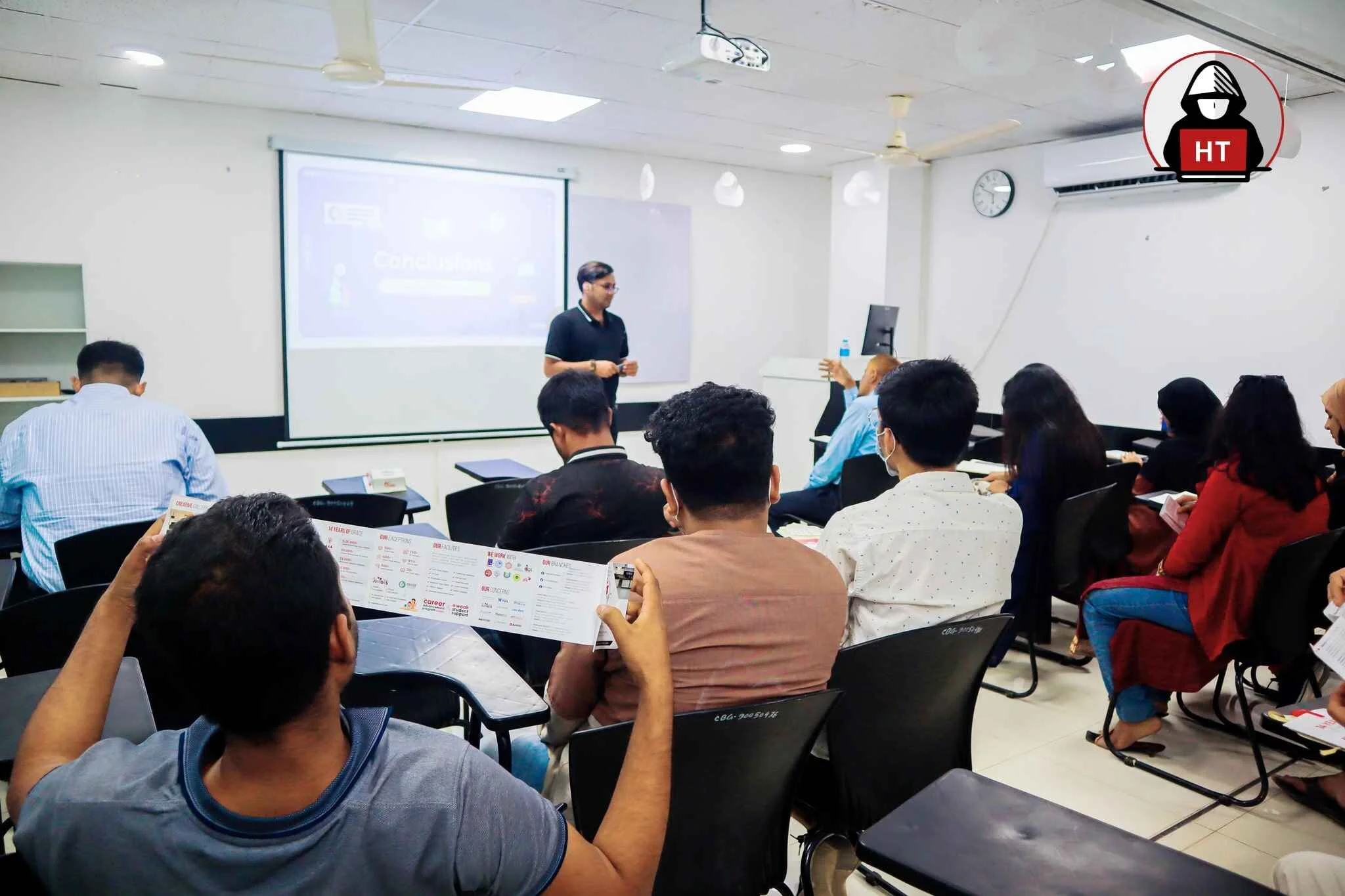

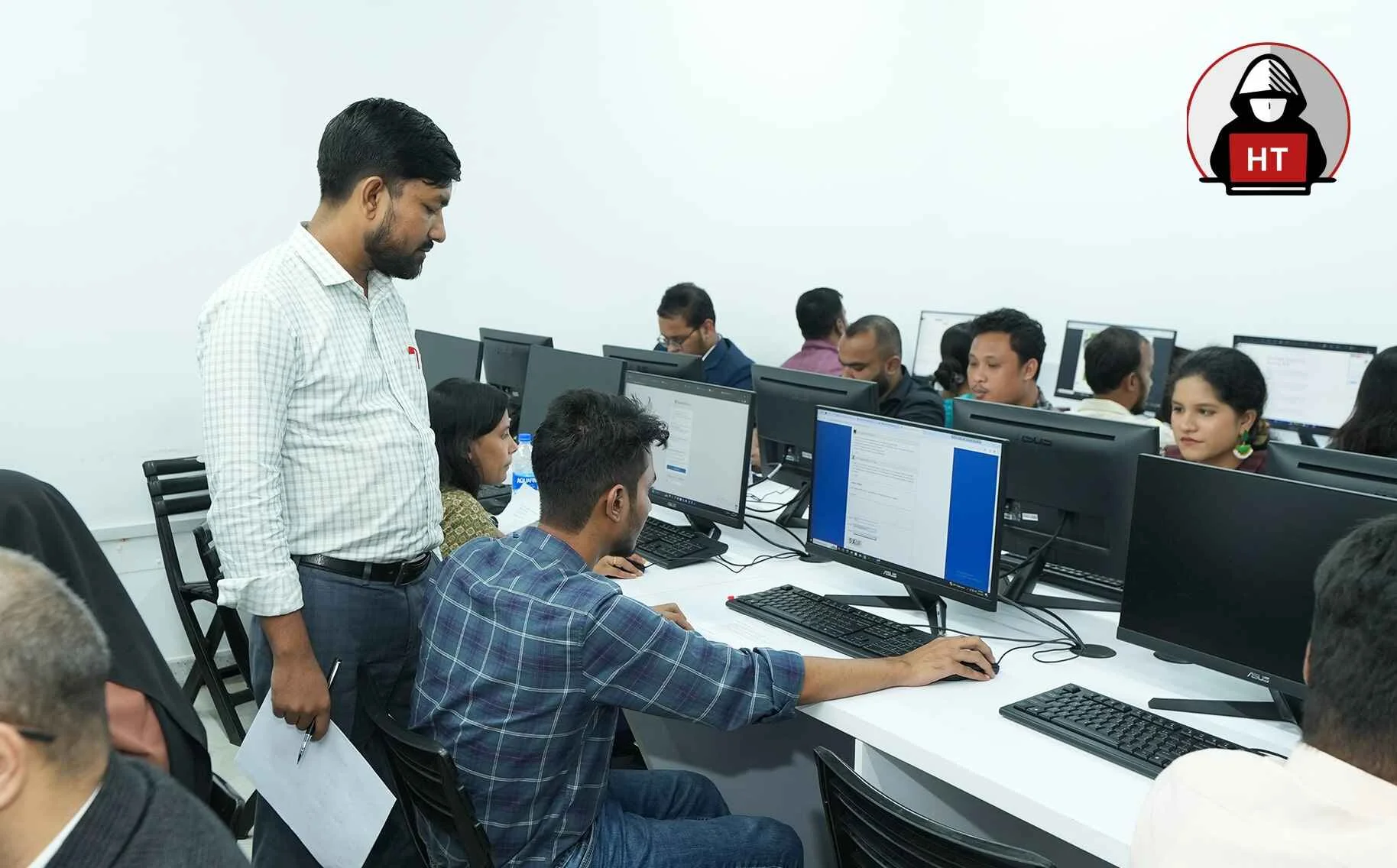
Hacking teacher Learning is here to ensure that you don’t get left behind in a world of technology that is too quickly changing. On a day to day basis, we’re recording and sharing content that can impact your bottom line.

Security in the cloud requires a new approach due to the unique risks, architectures, and shared responsibility models inherent to cloud computing. AWS Cloud Security training empowers professionals to handle these challenges, covering critical topics like identity and access management, network security, data protection, and threat detection. While AWS offers a range of security services and configurations, the vast capabilities require thorough understanding to use effectively and safely.
Cloud security professionals must understand AWS's shared responsibility model, which delineates responsibilities between AWS and customers for securing the infrastructure, data, and applications. The shared responsibility model emphasizes that AWS manages the security of the cloud infrastructure, while customers are responsible for securing their data and applications within the cloud. This division is central to cloud security, and AWS Cloud Security courses are designed to help professionals master these principles to protect their organizations against data breaches, unauthorized access, and other potential threats.
An AWS Cloud Security course typically starts with an introduction to cloud security fundamentals, providing a comprehensive overview of the AWS platform and the shared responsibility model. The course then dives into core security services, including Identity and Access Management (IAM), which controls access to resources; VPC (Virtual Private Cloud) for secure networking; and encryption and key management for data protection. Other key topics include monitoring, logging, and compliance, where participants learn to use tools like AWS CloudTrail, CloudWatch, and GuardDuty for real-time monitoring and auditing.
Training often features labs and hands-on exercises, enabling participants to practice configuring security settings, managing policies, and responding to security incidents. AWS security courses may also cover advanced topics, such as incident response, threat intelligence integration, and automation, which are essential for managing security in large, complex environments. By the end of the course, participants gain a strong foundation in AWS security best practices and are equipped to configure, monitor, and secure AWS environments in line with organizational and regulatory standards.
Identity and Access Management (IAM) is a cornerstone of AWS Cloud Security, as it governs who can access AWS resources and what actions they can perform. AWS IAM allows organizations to define permissions, create user roles, manage multi-factor authentication, and set up policies for secure access control. In an AWS Cloud Security course, participants learn how to create IAM roles and groups, set permissions, and use policies to limit access to critical resources.
IAM best practices include using least privilege principles, enabling multi-factor authentication (MFA), and regularly reviewing permissions to prevent over-privileged accounts. Courses often include hands-on labs where participants practice creating IAM policies and configuring MFA, learning to apply IAM in a way that minimizes risk while ensuring that users have the access they need to perform their jobs. IAM is central to any AWS security strategy, as it helps prevent unauthorized access to sensitive resources and data, which is often the first step in securing AWS environments.
Automation is essential in modern cloud security, as it allows organizations to respond to security events and enforce security policies consistently. AWS Cloud Security training includes modules on automation, teaching participants to use AWS Lambda, AWS Systems Manager, and AWS CloudFormation to automate security tasks. Lambda allows organizations to execute code in response to specific events, enabling automated responses to security alerts.
Systems Manager provides a centralized management interface for automating tasks across AWS resources, while CloudFormation allows for infrastructure as code, making it easy to create and enforce security configurations. Participants learn to create automated workflows, implement compliance checks, and set up infrastructure as code templates for consistent security configurations. By mastering automation, participants can streamline security operations, reduce the likelihood of human error, and ensure that security best practices are consistently applied across the AWS environment.
An AWS Cloud Security Course is designed to teach professionals how to secure data, applications, and services within the Amazon Web Services (AWS) cloud environment. The course focuses on AWS security best practices, tools, and techniques, including identity and access management (IAM), network security, data encryption, threat detection, and compliance management.
Participants learn to secure the entire AWS infrastructure, from compute and storage to networking, by applying advanced security measures. The course typically prepares students for AWS-specific certifications such as the AWS Certified Security – Specialty, which validates the knowledge required to design and implement robust security on AWS.
While there are no strict prerequisites, prior experience with cloud computing and AWS services is highly recommended. Having a foundational understanding of AWS services like EC2, S3, VPC, and IAM will significantly enhance the learning experience.
It is also beneficial to have a basic understanding of networking, security principles, and IT systems, as these concepts are integral to securing cloud infrastructures. For beginners, taking the AWS Certified Solutions Architect – Associate course or similar introductory AWS courses can provide a strong foundation before diving into security-specific topics. Additionally, familiarity with industry security standards and protocols, such as encryption and firewalls, can help speed up the learning process.

Interview wifi Hacking

Life of Hacking Teacher

Microsoft on Vishal Sharma

Software Engineer at Vortex
“Hacking Teacher’s ArcSight SIEM course delivers a comprehensive blend of theory and hands-on practice. The instructor’s expertise and clear explanations make complex topics easy to grasp, while practical exercises solidify learning. Highly recommended for anyone serious about mastering ArcSight SIEM.”

Software Engineer at Swifi
“Hacking Teacher’s AWS Cloud Architect course demystifies AWS concepts with clear explanations and hands-on exercises. Whether you’re aiming for certification or skill enhancement, this course delivers tangible results.”

Data Analysis at TechGenius
“Transform your career with Hacking Teacher’s AWS Cloud Architect course. Gain practical skills and expert guidance to excel in architecting solutions on AWS. Don’t miss out on this opportunity to elevate your career in cloud computing.”
FAQ
Our online courses are tailored to your specific needs, whether you are an experienced senior executive or a rookie leader.
Lorem ipsum, dolor sit amet consectetur adipisicing elit. Eum laborum qui tempora numquam!
We trained on how to secure AWS environments, things like IAM, network security, encryption, compliance, and monitoring.
Depends on the course and how fast you take the quizzes, but usually around 2-4 weeks.
Basic knowledge about IT and networking. A familiarity with cloud concepts. Free AWS account for practice. What is the best AWS Cloud Security Course? AWS Training or A Cloud Guru, Coursera or Udemy AWS Certified Security – Specialty (SCS-C01).
Yes, given full time effort and study.
No. OSCP (Offensive Security Certified Professional) This is not a question of cloud specific security but penetration testing.
For AWS Cloud Security, there is no particular diploma, however top differentiation in AWS Cloud security is AWS Certified Security – Specialty (SCS C01).
It includes Cloud Security Engineer, Security Consultant, AWS Security Architect, and Cloud Compliance Specialist applications.
With resources like AWS free tier labs, Udemy, A Cloud Guru and AWS training, yes.
Begin with AWS Certified Cloud Practitioner (CLF-C01) to go over fundamental knowledge, and move on to AWS Certified Security – Specialty (SCS-C01). How Do I Prepare for AWS Cloud Security Course? Knowledge of basic IT, basics network. How to develop AWS services. Hands on practice on AWS free-tier account. Labs, online courses, official guides.
This simple lab requires no coding, only basic knowledge of IT and networking. You should know AWS core services and the basics of the cloud. I said I have willingness to practice hands-on in the AWS environments.
No. OSCP (Offensive Security Certified Professional) This is not a question of cloud specific security but penetration testing.
AWS Certified Security – Specialty is OS collected from AWS and tiny bit different than OSCP, but the practice is still the same, witch is not challenging, it is rather manageable.
AWS Training: Official AWS platform. Online Platforms: Udemy, Coursera, A Cloud Guru. Bootcamps: Simplilearn, Cloud Academy.
The most recommended course is AWS Certified Security – Specialty (SCS – C01).